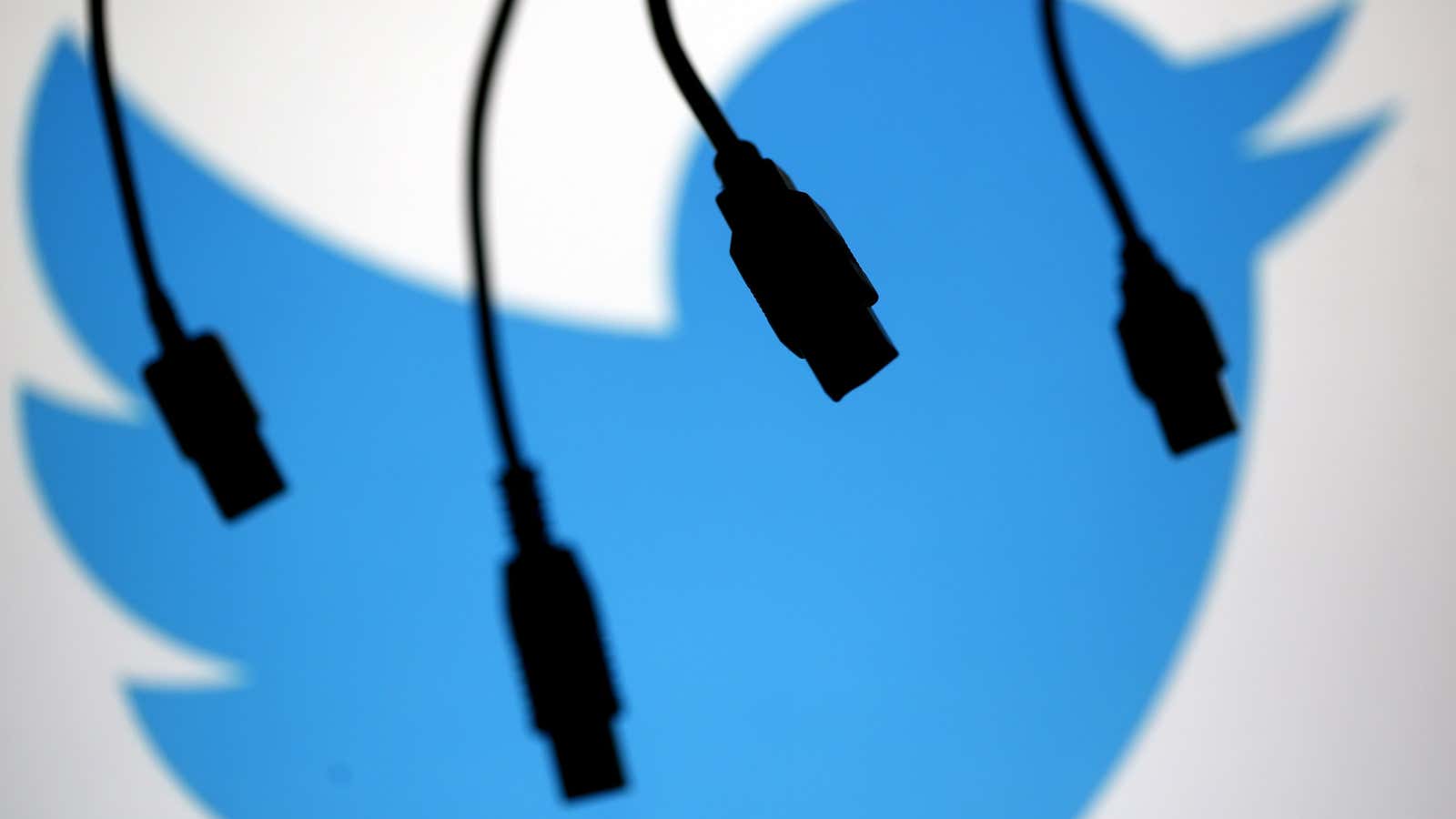Twitter bots programmed to support Donald Trump unleashed a torrent of content around the first debate between the two candidates running for the US presidency on Sept. 26, according to new analysis (pdf) by the Project on Computational Propaganda at Oxford University.
There were four times as many pro-Trump messages from bots than pro-Clinton messages, the analysis by Bence Kollanyi, Philip Howard, and Samuel Wooley found. The researchers analyzed 9 million tweets between Sept. 26, when the debate took place, and Sept. 29.
A larger proportion of tweets supporting Trump also appeared to be generated by bots compared to pro-Clinton messages. More than 30% of the pro-Trump tweets analyzed by researchers came from accounts that are suspected to be bots, because they tweeted over 50 times a day—a barrage of tweets that is well beyond that of the average user in the study, who tweeted once a day.
Bots can punch well above their weight when it comes to tweet volume. About 20% of all tweets around the presidential debate are thought to have been sent by bots, the researchers conclude, or just 0.5% of all the users in the sample.
The researchers can’t draw any firm conclusions on how the bots affected the electorate watching the debate. But it was clear that the Trumpbots were more effective than their rivals, using hashtags consistently and producing a consistently higher volume of content throughout. The study didn’t look at who owned or operated the bots, and there’s no evidence that they were part of the candidates’ official campaigns.
Howard told the BBC that using bots cleverly could boost a candidate’s grassroots support: ”These days it’s about engaging with your support base and constantly feeding them information, and certain hashtags that will keep their level of interest high.”
A flood of information can also confuse or hide issues, as sociology professor Zeynep Tufekci at the University of North Carolina at Chapel Hill has observed about the glut of information produced around this election campaign:
Howard and Kollanyi previously found that Brexit bots were producing larger volumes of messages than Remain bots ahead of the EU referendum, and we all know how that ended. The army of voluble bots in the US presidential race will be looking to have a similar impact.




